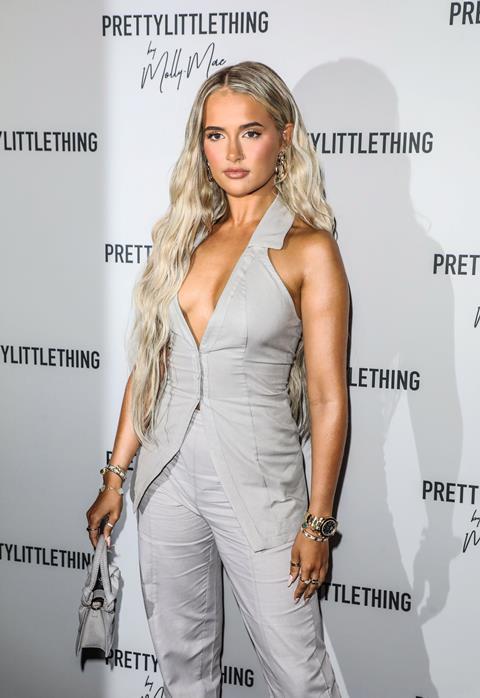Lauren Windle believes Molly-Mae’s new job raises questions for Christians who love fashion

Former Love Islander and beau of boxer Tommy Fury, Molly-Mae Hague, hit the headlines after receiving a seven-figure contract to become fast-fashion brand Pretty Little Thing’s (PLT’s) creative director.
Yes, that’s right. Seven figures. Without any decimal places.
The starlet was already an influencer pre-Love Island, but leveraged her TV appearance to inflate her following from hundreds of thousands to six million; the highest of any contestant from the (in)famous show.
The 22-year-old – oh yes sorry, did I not mention that she’s 22? – bought herself a congratulatory £37,000 Cartier bracelet to mark the promotion. Which makes my pay rise at Nando’s look a bit pathetic. Don’t get me wrong. While I think these sums of money are football-player-levels ridiculous, I applaud her business acumen and unparalleled success.
But let’s leave Molly-Mae for a second and talk about PLT.
The questionable ethics of PLT
The brand evolved with a number of others – BooHoo, Shein, Revolve to name a few – that all rose in popularity as they could deliver next-day fashion at outrageously low prices. At first sight this may seem like an ideal offering, but when you see bikinis selling for £1, you have to ask yourself – how are they making a profit?
If you were concerned that the bigwigs in corporate offices were sacrificing their holiday bonuses to slash the price of your birthday outfit, then don’t. They’re doing just fine. I can’t say with any certainty what happens in any of these companies’ supply chains, but sustainable fashion auditor Good On You is not impressed, highlighting that PLT doesn’t use eco-friendly materials and has given no evidence that it is taking steps to reduce its use of hazardous chemicals.
Good on You said: “It received a score of 0-10% in the Fashion Transparency Index…and it doesn’t disclose any information about forced labour, gender equality, or freedom of association…There is also no evidence it ensures payment of a living wage or any policies or safeguards to protect suppliers and workers from the impacts of COVID-19!”
What can we do about this?
Jesus valued people’s dignity and their bodies highly, and treated everyone with respect. We need to do the same, and that means not fuelling a system that puts people in unfit conditions or fails to properly compensate them for their work.
I first started thinking about sustainable fashion a couple of years ago when my church hosted a screening of The True Cost and a panel discussion. I started reading up and learned about the horrific Rana Plaza disaster, where 1,134 were killed when a garment factory collapsed in Bangladesh. Their working conditions were abhorrent. I decided I couldn’t contribute – even in a very small way – to something that was so against the biblical teachings that guide my life.
Earlier this year I stopped buying new clothes altogether. I now only buy secondhand from eBay, Depop or Vinted, and for special occasions I rent dresses from By Rotation. Ethical brands are wonderful if you can afford them, but I found secondhand meant I could be more realistic with my budget. It’s a start.
Do something!
I don’t think God calls us to do everything. You don’t have to solve the world’s problems single-handedly. You don’t have to stop all unsustainable clothing sales, cement world peace and then stop people from putting chocolate bars in the fridge (you know that’s just wrong).
But you are called to do something.
In the face of heavy media pressure, Pretty Little Thing has pledged to improve sustainability, and that’s great. I hope Molly-Mae passionately pursues that, so the people who make the clothes can experience even a fraction of the comfort she enjoys.
The rest of us won’t have her level of sway, but we can influence with our spending habits, our conversations and our prayers.
That’s where I’m starting.
Image credit: Sipa US / Alamy Stock Photo

































